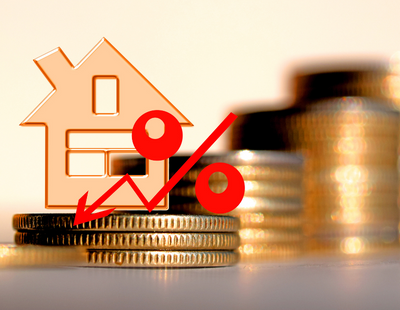The proportion of new homes sold off-plan across England & Wales has slipped to the lowest level since 2013, new data suggests.
Analysis by Hamptons has found that 34% of new homes across England and Wales were sold in advance of completion last year, down from a peak of 46% in 2016.
This marks the fifth time in the past six years that the proportion of new homes sold off-plan has fallen.
The agency brand said the fall in the share of homes sold in advance of completion reflects a steady decline in investors who are the most likely group to buy off-plan.
This decline can be traced back to 2016 and the introduction of the 3% stamp duty surcharge on second homes, Hamptons claims.
In 2015, 70% of off-plan buyers were investors, a figure which fell to just 21% in 2022.
Meanwhile first-time buyers made up 67% of off-plan purchases last year.
The shift away from investors coupled with a change in where they were buying means that for the first time since at least 2007, new terraced houses have been more likely to sell off-plan than flats, according to the research.
With flats making up more than 90% of new homes in London, for the first time in at least 15 years, the capital didn’t account for the largest proportion of new homes sold off-plan.
Last year 44% of new homes in the capital were sold off-plan, down from a peak of 71% in 2016. This figure was surpassed by the North West where 45% of homes were sold in advance of completion in 2022, a similar level to 2016.
David Fell, lead analyst at Hamptons, said: “Smaller new houses are now more likely to be sold off-plan than flats. This reflects Covid-induced changes alongside a shift in who is willing to buy before a new home is completed.
“Off-plan demand has steadily moved away from investors buying two or three years in advance towards first-time buyers who are typically looking to move home within 6-12 months. The majority, however, still want to wait to see a finished product."
Fell suggested that slowing rates of price growth have also reduced the incentive for some buyers to get in early.
He added: "A decade ago, investors buying well in advance of completion often saw the value of their new home rise 20-40% between exchange and completion. But as price growth has slowed, buyers have in general become less willing to commit to purchases years in advance of completion.
“Overall, the continued slowdown in the number of new homes sold off-plan coupled with the end of Help to Buy is hitting most housebuilder’s bottom lines. Slowing sales rates mean that some developers are slowing down the pace of work in order to reduce their risk.
“Without a relaunch of Help to Buy or replacement with a similar scheme, in the short term it’s likely to mean far fewer homes will be built in 2023 than there have been over the last couple of years.”
















.png)


.png)




Join the conversation
Be the first to comment (please use the comment box below)
Please login to comment